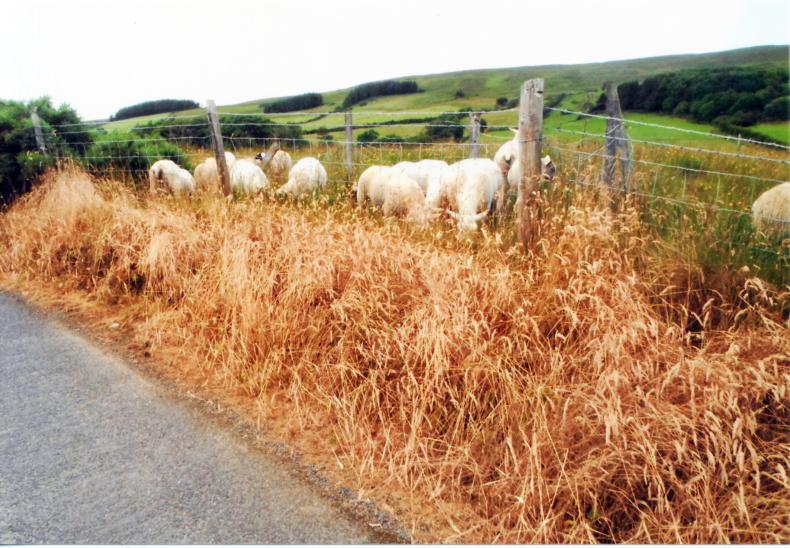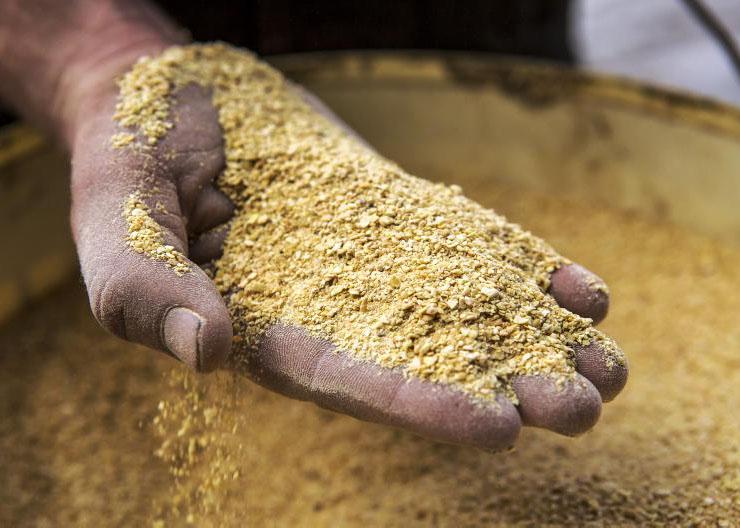Most farmers will be unaware of the continuously unfolding story around glyphosate in the EU and elsewhere.
In short, the current five-year registration ends on 15 December, so its use could end unless the registration is extended.
The process of re-registration was in progress well ahead of that deadline, but this was delayed because of the efforts by the European Commission to ensure full transparency on all matters relating to the adjudication.
This included a full public consultation, which generated a huge level of response and the evaluation of these responses has delayed the process by up to 12 months.
Deadline
When a registration deadline cannot be met, the process can accommodate the delay for a defined period. But this decision still has to seek approval, which was not forthcoming on two occasions due to what is called a blocking minority.
As the Commission is legally bound to make a decision, it did so on 2 December, so glyphosate products remain legal now up to 15 December 2023.
However, it is worth noting that the voting pattern on glyphosate renewal is broadly similar to that employed by member states in votes relating to the licensing of GMO variety imports.
So now there is another year of use available, but after that no one knows. It is obvious that the political resistance has not gone away, even though the blocking majority was futile in terms of its effect in this scenario.
Political resistance
The resistance to glyphosate is complex. It is certainly not because it is toxic in any way, but an assessment by the International Agency for Cancer Research (IARC) in 2015 indicated that glyphosate was probably carcinogenic to humans, based on “limited evidence” in human experiments.
It is probable that the main source of the negative vibes before that lay in the anti-GM and anti-corporate brigades and the cancer statement added another string to their bow.
This generated a lot of resistance to the active and it probably magnified the antagonism towards Monsanto, which was since taken over by Bayer.

Glyphosate is also used in ways that cause damage to the environment.
The IARC statement led to a plethora of legal cases being taken against Monsanto/Bayer in the US by people who claimed that their cancer was caused by their interactions with glyphosate.
Many of the early cases were won by the claimants and huge awards were made against the company.
However, appeals to higher courts have led to a number of wins for Bayer, the most recent of which was in St Louis County Circuit Court.
This was the sixth victory in a row for Bayer in US courtrooms and the company had previously agreed to pay out $10bn to help resolve around 120,000 pending lawsuits.
These alleged that Roundup caused their specific cancers and they were demanding compensation. Thousands of other Roundup cases remain unresolved and this has led to more trials in Missouri, California and Oregon.
We must wait to see if some or many of these will now be withdrawn due to the recent court decisions.
These trial results are strengthening Bayer’s stance on defending glyphosate as not being a cause of cancer, but will they or can they have any impact on the attitudes that will prevail in Europe less than a year from now? That outcome certainly cannot be taken for granted.
Most farmers will be unaware of the continuously unfolding story around glyphosate in the EU and elsewhere.
In short, the current five-year registration ends on 15 December, so its use could end unless the registration is extended.
The process of re-registration was in progress well ahead of that deadline, but this was delayed because of the efforts by the European Commission to ensure full transparency on all matters relating to the adjudication.
This included a full public consultation, which generated a huge level of response and the evaluation of these responses has delayed the process by up to 12 months.
Deadline
When a registration deadline cannot be met, the process can accommodate the delay for a defined period. But this decision still has to seek approval, which was not forthcoming on two occasions due to what is called a blocking minority.
As the Commission is legally bound to make a decision, it did so on 2 December, so glyphosate products remain legal now up to 15 December 2023.
However, it is worth noting that the voting pattern on glyphosate renewal is broadly similar to that employed by member states in votes relating to the licensing of GMO variety imports.
So now there is another year of use available, but after that no one knows. It is obvious that the political resistance has not gone away, even though the blocking majority was futile in terms of its effect in this scenario.
Political resistance
The resistance to glyphosate is complex. It is certainly not because it is toxic in any way, but an assessment by the International Agency for Cancer Research (IARC) in 2015 indicated that glyphosate was probably carcinogenic to humans, based on “limited evidence” in human experiments.
It is probable that the main source of the negative vibes before that lay in the anti-GM and anti-corporate brigades and the cancer statement added another string to their bow.
This generated a lot of resistance to the active and it probably magnified the antagonism towards Monsanto, which was since taken over by Bayer.

Glyphosate is also used in ways that cause damage to the environment.
The IARC statement led to a plethora of legal cases being taken against Monsanto/Bayer in the US by people who claimed that their cancer was caused by their interactions with glyphosate.
Many of the early cases were won by the claimants and huge awards were made against the company.
However, appeals to higher courts have led to a number of wins for Bayer, the most recent of which was in St Louis County Circuit Court.
This was the sixth victory in a row for Bayer in US courtrooms and the company had previously agreed to pay out $10bn to help resolve around 120,000 pending lawsuits.
These alleged that Roundup caused their specific cancers and they were demanding compensation. Thousands of other Roundup cases remain unresolved and this has led to more trials in Missouri, California and Oregon.
We must wait to see if some or many of these will now be withdrawn due to the recent court decisions.
These trial results are strengthening Bayer’s stance on defending glyphosate as not being a cause of cancer, but will they or can they have any impact on the attitudes that will prevail in Europe less than a year from now? That outcome certainly cannot be taken for granted.











SHARING OPTIONS